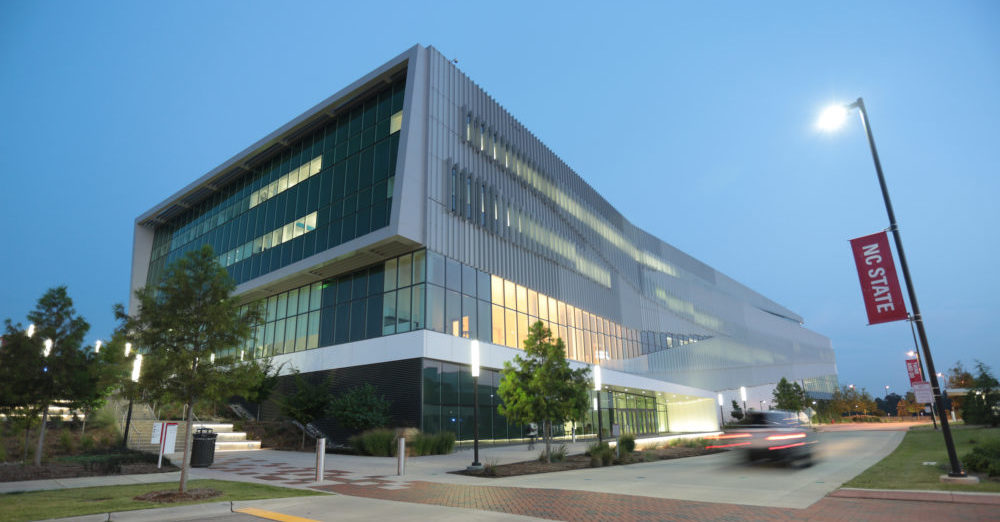NC State angel network hits $10 million in investments into startups

An NC State alumni investment group has now put more than $10 million into mostly local startup companies, making it part of a wave university-affiliated groups raising serious sums of cash for local startups. Duke, UNC and NCCU have similar groups.
It started with Duke University in 2015 and then, a year later, universities across the Triangle followed suit.
They were all creating angel investor networks, an effort by each school to pool together their rich and connected alumni as a group to steer much needed capital into the young startups that were being birthed at their alma maters.
The universities — Duke, UNC, N.C. State and N.C. Central — now even work together to sometimes invest in the same companies. The four angel alumni groups also share back-office support and use teams of students to conduct due diligence on potential deals.
The universities all recognized a common issue: that the first round of funding is sometimes the hardest, and most critical, for a startup’s success. And about three years on from the birth of these networks, the money is adding up.
The Wolfpack Investor Network, which was launched in December 2016, has now deployed more than $10 million in investments into startups since it was founded.
For the alliance as a whole, the universities have now raised a little more than $31 million for startups affiliated with their institutions.
For the Wolfpack Investor Network (WIN), it has meant that 18 different companies, with some form of relationship to N.C. State, have now received money from the network’s 150 alumni and university-affiliated members, said Brett Danforth, co-managing director of the WIN.
“It has been a great way to engage faculty and alumni and it’s been a great way to give back to N.C. State by investing in companies that are affiliated” with the university, Danforth said.
It’s also a chance for alumni to invest in potentially fast-growing startups and expand their own personal networks.
Danforth joined WIN earlier this year, having previously worked at Square 1 Bank lending to technology companies throughout the Southeast.
He said that historically the Triangle has had a rap that seed money for startups has been harder to come by here than in some other larger markets. He thinks that reputation is changing.
“The things that people claimed our ecosystem was lacking have changed,” he said. “I hear a lot more talk now about raising bigger rounds of capital and finding talent. … Those conversations have changed a lot, which is a testament to what our members have done as well as the members of other networks.”
Danforth said angel networks like WIN make it easier to raise money by reducing the number of times entrepreneurs have to pitch their company to investors. He said the 150 members hear pitches at monthly meetings and then a video of the pitch is shared to those who couldn’t attend.
Scot Wingo, the former CEO of ChannelAdvisor, has had a chance to see both sides of the WIN process — both as an investor and as the co-founder of a newer startup called Spiffy.
He likes WIN’s approach, which allows members to make their own decisions. Traditionally, Wingo said, when you join an angel network you put your money into a larger pool, but you don’t necessarily get a say where that money will end up.
“What I like about WIN is each angel gets to pick which companies to go in on,” he said. “I can invest in things in my wheelhouse. Biotech is not in my wheelhouse, for example, and I have no idea what is good.”
Wingo, who went to State for graduate school, said he joined WIN because when he was first starting companies in the Triangle, he was lucky to find a few people in the area to believe in his ideas in the early days.
“It is really important” to have local angel investors, Wingo said, “because we always talk about wanting more capital in the Triangle, but early-stage capital is what we really need. If you can get your company to a three to five million dollar run rate you can attract outside capital. But it is getting to that level” that requires early investors.
Wingo’s latest startup, Spiffy, is based in Durham and provides on-demand car washes and other car-related services. Spiffy also has been the recipient of funds from WIN.
Spiffy, whose customers can order car washes, oil changes and other services via an app, has now raised close to $30 million, and WIN participated in some of the company’s earlier fundraising rounds.
Wingo said former WIN director Joe Sinsheimer convinced him to pitch Spiffy to WIN members. At that time, WIN checks were getting larger — growing from $50,000 infusions to checks now in the six figures.
The cash has helped turn Spiffy into a national brand. Originally just focused on the Triangle, the company now has operations in markets like Charlotte, Atlanta and Dallas; it has hired 150 technicians to service cars; and it recently started offering fleet management service in New York, Seattle and Washington, D. C.
“We didn’t really need it, but it worked out and it was good for them and good for us,” Wingo said.
So far, WIN’s investments have gone mostly to companies based in the Triangle, Danforth said. Among them:
Reveal Mobile, a location-based marketing and analytics firm based in Raleigh.
Improved Nature, a Garner-based company creating soy products that have the same protein nutrition and taste as meat.
Mimikai, the maker of a DEET-free insect repellent developed at N.C. State.
Tethis, a Raleigh-based startup creating a super absorbent polymer for the diaper industry.
- Categories:


